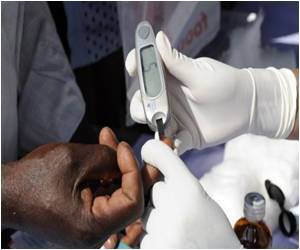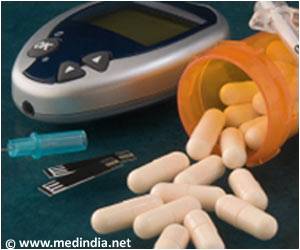People who have diabetes at the time they are diagnosed with cancer are more likely to die early than those without diabetes.

While the research base on the links between diabetes and cancer continues to grow, little previous research has addressed the relation to different diabetes treatment types, and findings differ among different studies, including on the link between diabetes duration and mortality of cancer patients relative to the non-diabetic cancer population.
"In this study, we aimed to explore differences in survival among cancer patients with diabetes prior to cancer diagnosis compared with cancer patients without diabetes," says Ranc. "A specific aim was to examine the association between different types of glucose-lowering therapies and survival after cancer diagnosis, as well as to examine how this association varies with duration of diabetes and by time since diagnosis of cancer."
This register-based study included all cancer patients diagnosed in Denmark during 1995–2009. The patients were classified into four groups according to diabetes status at the time of cancer diagnosis: no diabetes, diabetes without medication, diabetes with only oral hypoglycaemic agents (OHAs) or diabetes with insulin treatment. Since the study is entirely observational, the authors stress that causality cannot be inferred.
The researchers found that for patients with 2 years of diabetes duration and treated with insulin at the time of cancer diagnosis have 4 times higher mortality one year after cancer diagnosis. The figure is slightly different between men (3.7) and women (4.4), and there is a small increase by time since cancer diagnosis, to a 5 times increased mortality at 5 years since cancer diagnosis.
For people with diabetes using only oral antidiabetic drugs (for example, metformin), the increased risk of death was much lower, at 10% for both men and women one year after cancer diagnosis having had diabetes for two years versus non-diabetics. After 5 years, this increased risk was 50% for both men and women. For those who were not on any form of diabetes treatment, the increased risk of death was very similar to those for patients on oral antidiabetic drugs.
Advertisement
The authors discuss that differences in cancer treatment between patients with and without diabetes may contribute to increased cancer-related mortality. Patients with diabetes often have other diabetes-related comorbid conditions, such as ischaemic heart disease, chronic kidney disease and neuropathy, that may influence clinical decisions.
Advertisement
Referring to other research, the authors also discuss that it is possible patients with both diabetes and cancer could be less aggressively treated than non-diabetics with cancer have higher cancer-operation mortality, and that people with diabetes could present with cancer at a more advanced stage of the condition, due to diabetes masking their symptoms.
Ranc concludes: "Our study provides strong support for the notion that pre-existing diabetes increases mortality among cancer patients, and that the excess mortality is larger among patients with diabetes treated with OHAs or, particularly, insulin...it is crucial that cancer patients with diabetes receive optimal diabetes treatment as well as any cancer-specific therapy; a therapeutic challenge requiring close collaboration between oncologists and endocrinologists."
Source-Eurekalert















